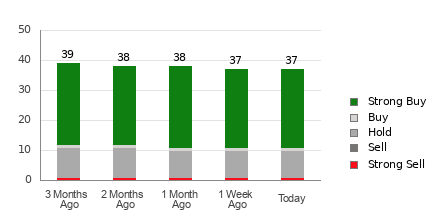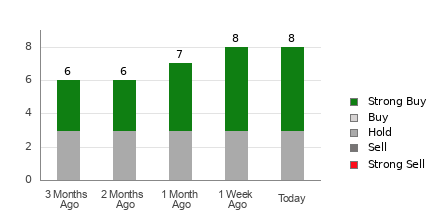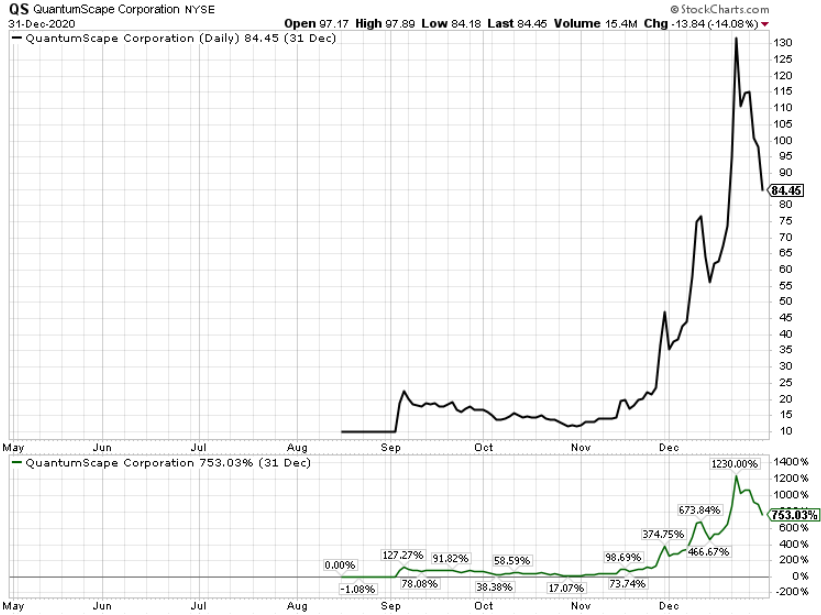Ford Set to Reveal Q3 2024 Earnings Amidslower Growth
Ford Motor Company (NYSE:F) is preparing to announce its Q3 2024 earnings soon, following a period of slower delivery growth in the U.S. We anticipate the company will report a revenue of approximately $41.7 billion, reflecting a slight increase of around 1% from the previous year. Earnings are expected to stand at about $0.51 per share, slightly surpassing consensus estimates and representing a substantial 40% increase compared to last year’s figures. Despite this, Ford’s stock has struggled this year, down roughly 7% year-to-date, while its rival, General Motors (NYSE:GM), has seen an impressive gain of nearly 35%. What factors might influence Ford’s quarterly results? Explore our analysis in the Ford Earnings Preview.
Sales Trends and Headwinds
In Q3, Ford’s U.S. sales experienced a modest rise to 504,039 units, only a 1% increase compared to a robust 7% growth during the same period last year. The current high interest rates have escalated the cost of vehicle financing, dampening consumer demand. Additionally, the pricing advantages that automakers previously enjoyed during the pandemic are diminishing as consumer spending shows signs of weakening. Despite these challenges, Ford managed to outperform the general U.S. automotive market, which saw a 2% decrease in overall sales, largely thanks to a significant uptick in hybrid and electric vehicle demand. Hybrid sales jumped 38% to 48,101 units, and electric vehicle sales grew by 12%. Notably, deliveries of Ford’s trucks increased by 6% year-over-year.
Inconsistent Earnings Performance
Ford’s earnings performance has exhibited variability. In Q2 2024, adjusted profits were reported at $0.47 per share, which fell short of estimates and marked a 35% decline from Q2 2023. This was contrasting to GM, whose performance surpassed expectations. Although Ford’s revenue grew by approximately 6% in the last quarter, it faced pressure from rising warranty repair costs associated with quality issues from vehicles manufactured in 2021 and earlier. An $800 million surge in warranty costs during Q2 caught investors off-guard and highlighted a persistent challenge for the company. Improvement in quality and warranty expenses is anticipated to take time; however, Ford could benefit from a favorable sales mix of trucks and strong performance from its premium Lincoln brand. Over the past four years, Ford stock returns have fluctuated significantly, showing a rise of 137% in 2021, a decline of 42% in 2022, and a recovery of 16% in 2023. In comparison, the Trefis High Quality (HQ) Portfolio, composed of 30 stocks, has consistently outperformed the S&P 500 each year during this same period, providing better returns with less volatility.
Positive Shifts and Economic Context
Amid concerns regarding the larger automotive market, Ford has some positive trends that may enhance its future performance. A notable change is the company’s evolving strategy toward electric vehicles. Previously, a slow transition to EVs negatively impacted Ford’s stock, but that dynamic is shifting. The company is now adopting a balanced approach by diversifying its portfolio to include gas, hybrid, and electric vehicles. This strategy positions Ford to adapt to changing consumer preferences without overly investing in expensive EV developments. It could also improve profitability as the industry’s slower EV growth allows for optimization in traditional vehicle segments while enhancing electric offerings gradually.
Additionally, recent adjustments to U.S. monetary policy could boost Ford’s prospects. Last month, the Federal Reserve enacted its first rate cut in almost four years, lowering the benchmark federal funds rate by 50 basis points to a range of 4.75% to 5%. Should further reductions occur, decreased borrowing costs might encourage consumers to invest in larger purchases, like vehicles, benefitting companies like Ford. Explore our analysis of other strategies to profit from future Fed decisions.
Valuation and Future Outlook
We value Ford stock at $14 per share, approximately 28% above its current market price. For a deeper understanding of the factors influencing our valuation, refer to our Ford Valuation: Expensive Or Cheap assessment. Additionally, to learn about Ford’s revenue streams and business model, visit our Ford Revenue: How Ford Makes Money dashboard.
As investors remain hopeful for a stable economic recovery post-rate cuts, they also must consider the risks associated with potential recessions. To understand how key stocks have reacted during previous market downturns, check out our dashboard, How Low Can Stocks Go During A Market Crash.
| Returns | Sep 2024 MTD [1] |
2024 YTD [1] |
2017-24 Total [2] |
| F Return | -4% | -7% | 32% |
| S&P 500 Return | 1% | 20% | 155% |
| Trefis Reinforced Value Portfolio | 1% | 14% | 761% |
[1] Returns as of 9/30/2024
[2] Cumulative total returns since the end of 2016
Invest with Trefis Market-Beating Portfolios
See all Trefis Price Estimates
The views and opinions expressed herein are those of the author and do not necessarily reflect the views of Nasdaq, Inc.









